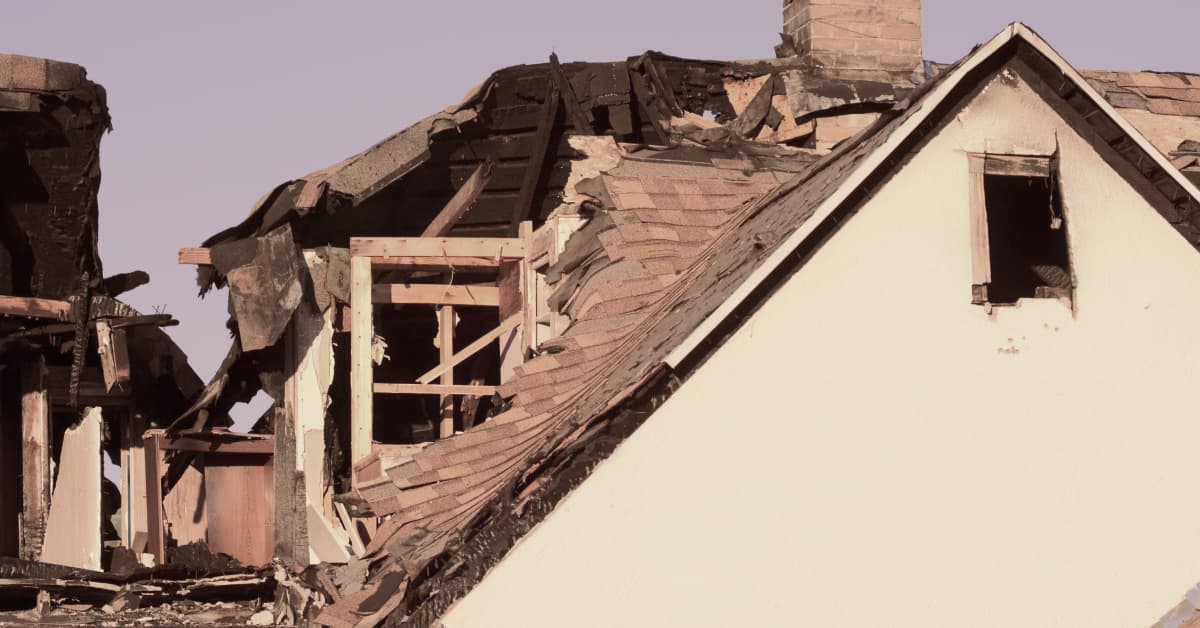$2,400,000 Rewarded
Negligent Maintenance: Serious Injury
Allow us to guide you through the process of securing compensation for any accidents or events that occurred on your property. Our experienced attorneys can provide you with legal assistance as it relates to property damage.



Case evaluations are 100% free and available 24/7

Property damage can be a significant disruption, whether it results from natural disasters, accidents, or negligent acts. Amidst the ups and downs, you may wonder if hiring a lawyer is worth it. The answer is: yes. In particular, you should hire an attorney from Alexander Shunnarah Trial Attorneys to assist with your claim.
Our lawyers can help you navigate the complex claims process, ensuring that all paperwork is correctly filed and deadlines are met. They are also adept at dealing with insurance companies, who often seek to minimize payouts or find ways to deny claims. Additionally, our legal expertise can be invaluable in cases where liability is disputed or you need to challenge an unsatisfactory settlement offer.
By securing legal representation from Shunnarah, you safeguard your interests and gain a confident ally who can guide you through the legal challenges after property damage. Teaming up with one of our attorneys can help you by providing:
A professional appraisal of your fine art is important to the amount of compensation you’ll get after experiencing property damage. Having your art professionally appraised will help you enter it into the Art Loss Register (ALR), which contains up-to-date information on stolen, damaged, or lost antiques and collectibles. The ALR is a computerized international database operated by an independent company based in London that offers pre- and post-loss services.
Even if you only have one or two pieces of art, make sure it has adequate coverage in case of property damage. Many limitations on home or condo insurance will often mean high value art is without adequate coverage, putting your treasures at risk.
Living in an area prone to severe weather and/or having a low slope or flat roof with asphalt shingles puts you at high risk for hail damage. Luckily, the majority of homeowners’ policies cover hail damage, mitigating the expensive nature of such repairs.
While hail can occur practically anywhere if natural conditions permit, insurers often may try to argue the damage suffered from a hail storm does not fit the conditions necessary for a claim.
Sinkholes tend to form in areas where underground water supplies, such as from an aquifer, dissolve rock—typically limestone. They are formed under pressure, generally from extreme drought or extreme rains. Human activities can also contribute to the development of sinkholes.
According to the U.S. Geological Survey, sinkholes are especially common in Texas, Alabama, Missouri, Kentucky, Tennessee, Pennsylvania and Florida. Regardless of the risk, most property is insured without respect to the land’s price; therefore, most natural disasters on the land are not covered by homeowners insurance. This means that additional coverage is required to insure against sinkholes.
However, in recent years, some states, such as Tennessee and Florida, have begun to require insurers to offer optional sinkhole coverage.
There are so many things that can be put at risk by a wildfire, including your home, vehicle, belongings, your business, and more. Each of these things affected by a wildfire may have different stipulations in order to make a successful insurance claim. An itemized list of belongings before the disaster may be required.
The U.S. Geological Survey reveals that 75 million Americans in 39 states are at significant risk from earthquakes, noting that earthquakes of 4.0 magnitudes or greater were documented in 23 states from 2002 to 2012.
Standard homeowner’s insurance policies do not include coverage in the case of an earthquake, so it is important to proactively acquire additional protection. You can supplement earthquake insurance onto your homeowner/renter insurance policy or purchase it as a stand-alone policy.
Hurricanes can be devastating, bringing high winds, extreme rain, and flooding. These natural disasters can cause massive damage to your home or business. Once the storm has passed, filing a hurricane damage claim must contain specific information to lodge a successful claim.
Being a victim of theft or vandalism can be an incredibly emotional experience. Contact your local authorities immediately if you find that your property has been stolen or vandalized, and make sure you file a police report. Most theft and vandalism cases are supported through the police reports filed at the time of the incident.
Most homeowner’s insurance policies cover theft and vandalism. You, the policyholder, are responsible for providing the authorities with all the necessary and accurate information regarding your theft and vandalism claim. If you discover more theft or vandalism later, contact the authorities and your insurance provider and inform them immediately of the new findings.
If your business is affected by theft and/or vandalism, you, as a business owner, may also qualify for a business interruption insurance claim.
High-velocity winds can severely damage to your property. Common windstorm claims involve roofs blowing off, trees falling on your property, fences blown down, and leaky windows.
Wind damage can also cause hidden damages that aren’t realized upon the initial assessment of your property. Damage caused by wind is covered in most homeowners insurance policies. However, there can be ambiguous exclusions or limitations that may cause your claim to be denied.
Fire and smoke damage can destroy everything from clothing to appliances to irreplaceable memories. Denial of a valid insurance claim after the fact only deepens the wound left behind. This type of property damage is common after wildfires, electrical accidents, and more.
When private property is damaged or taken for public use by the government, the property owner must be compensated for the loss. This is known as inverse condemnation, per the 5th Amendment of the Constitution.
Tornados can leave complete devastation in their wake. Many insurance policies classify a tornado as a wind event, and many policies cover damage to property and personal items from a tornado. However, we recommend you read through your policy to determine if there is a separate wind deductible that could include tornado damage. This separate deductible requires policyholders to pay a sum out of pocket before their insurance pays for the claim.
In the event your home is unlivable after a tornado, relocation or temporary housing expenses may be covered under your insurance policy.
Mold thrives in moisture-rich environments such as high indoor humidity, flooding, or a leaky roof or dishwasher. It sometimes hides in places you can’t see. Mold can cause serious illness, destroy property, and turn your home into a hazard.
Water damage is one of the most common reasons for filing an insurance claim with your carrier. While coverage typically excludes perils like flooding or sewage backup, a homeowners policy should cover other sudden or internal perils like a burst pipe.
Your dwelling coverage protects against structural damage if it is inside the property. Other weather-related perils causing damage can also be covered under your insurance policy.
While we aim to ensure you receive the compensation you deserve quickly and without complications, it doesn’t always mean a court battle is necessary. Our accident attorneys often persuade insurance companies to provide a fair settlement without needing a trial.
However, there are instances where negotiations may not result in an agreeable resolution. In such cases, taking the matter to court becomes essential to ensure you receive the justice and compensation you’re entitled to.
Protecting yourself after property damage is the smart choice for your finances and future. That’s why it’s important to select a dynamic property damage lawyer, like one from Shunnarah, who is prepared to fight insurance companies in court.
Alexander Shunnarah Trial Attorneys handles cases in all 50 states. Find a location or attorney to assist you with your case.
Explore our FAQ to get the answers to some of our most frequently asked questions about property damage.
When should I consider hiring an attorney for property damage?
Consider hiring an attorney if your property damage is significant, if the insurance company disputes your claim, or if there are complexities such as determining liability or dealing with multiple parties. An attorney can provide expert advice on your legal options and help you navigate the claims process more effectively.
What can an attorney do for me that I can’t do on my own after my property is damaged?
An attorney can handle negotiations with insurance companies, ensuring that you receive a fair assessment and settlement of your claim. They are skilled in interpreting insurance policies and legal jargon, which can be crucial in maximizing your compensation. Additionally, an attorney can file a lawsuit on your behalf if negotiations fail, representing you in court if necessary.
How is my Shunnarah attorney paid?
Shunnarah property damage attorneys work on a contingency fee basis, meaning they receive a percentage of the settlement or award rather than charging upfront fees.
Negligent Maintenance: Serious Injury
Motel Balcony Fall: Serious Injuries
Alabama
Catastrophic Accident Involving A Passenger
Alabama
Available 24/7 for immediate case evaluations post-accident or injury.
Connect with a dedicated attorney who will aggressively pursue your compensation through trial if needed.
Receive top-tier legal guidance and representation. We don’t give up until you receive the compensation you deserve.